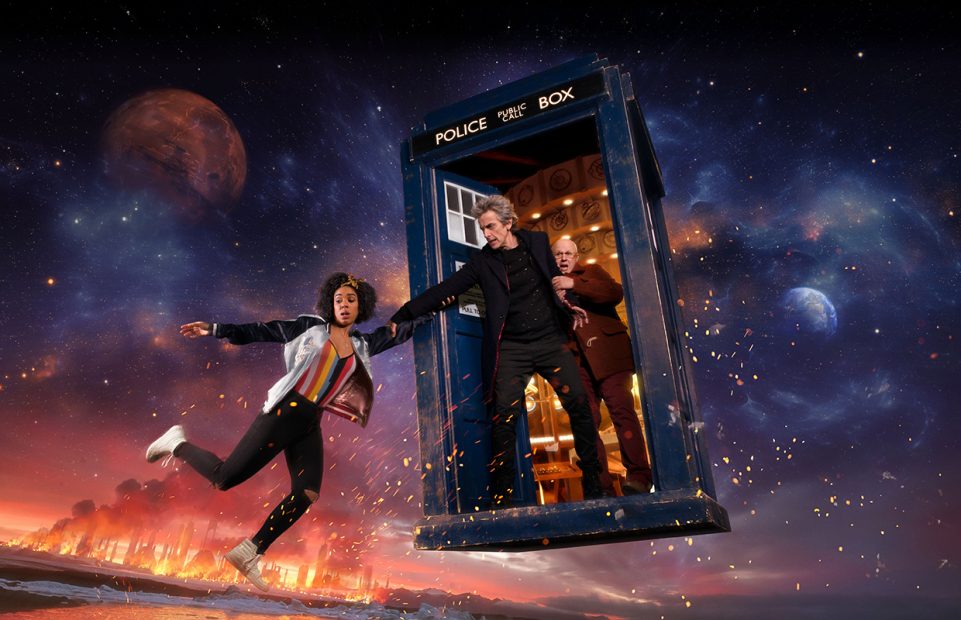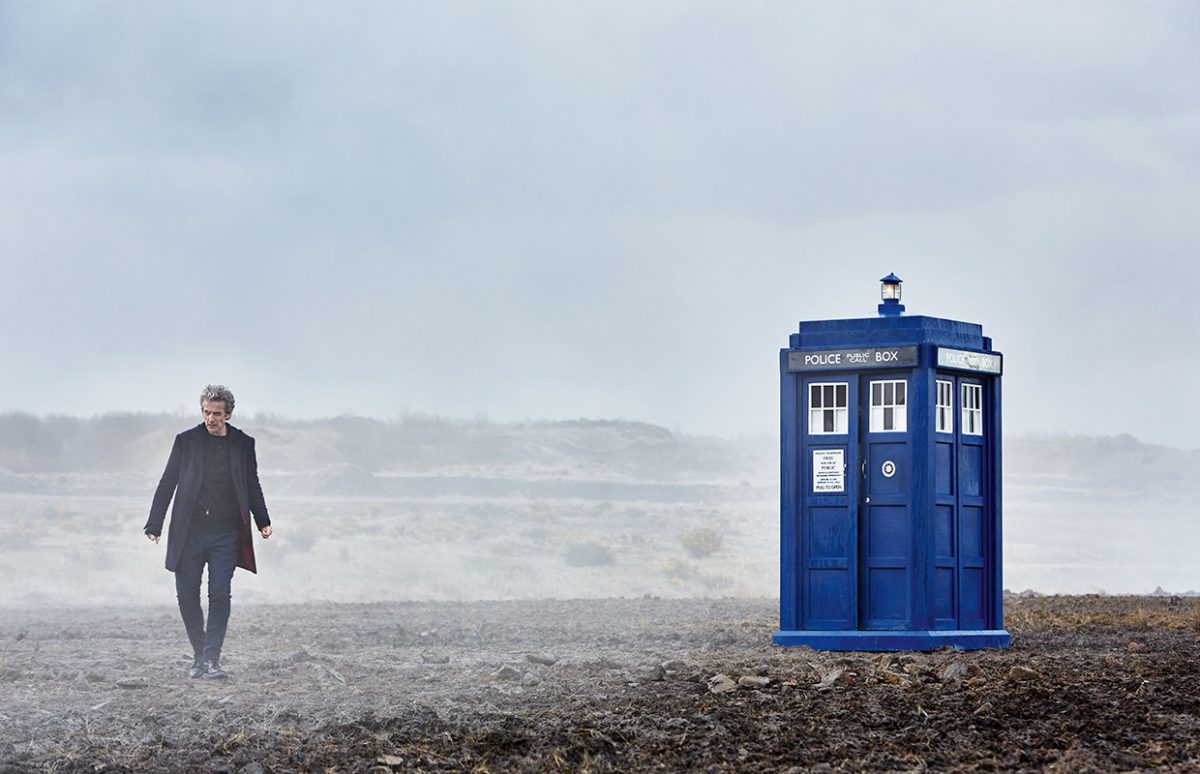It was the British equivalent of making an announcement during the halftime break in the U.S. Superbowl game. Immediately after the 2017 Wimbledon men's final the BBC revealed what the entire U.K. seemed to have been waiting for... that the next actor to portray the lead in sci-fi series Dr Who would be... a woman!
That millions of people were waiting with bated breath for the news says a lot about Britain's self-image as a multicultural nation... and is a testament to the incredible success of what was a low-budget, quirky, cancelled T.V. series.
Dr Who debuted on the BBC in 1963. A Saturday evening family show, it was homemade and looked it.
The basic premise of the show would no doubt have made any self-respecting Hollywood executive reject it without a second thought. Here's the elevator pitch:
The hero is a human-looking alien from a race called the Time Lords. He travels in space and time in a spaceship called a Tardis. This looks exactly like one of the blue wooden Police telephone boxes that were common on British streets at the time. But when you open the door, it's bigger on the inside than the outside. In fact, infinitely big. The hero is just called the Doctor (this, and the Tardis, is the source of many jokes in the series) and spends his time travelling through the universe and history battling various aliens and monsters and saving civilisations, most commonly humans. The Doctor isn't especially likeable, in fact he's often quite curmudgeonly, and displays a well-nigh autistic lack of understanding of human emotions. The original concept was that the series should be educational, teaching children about different periods in history through the time-travel theme.
The series ran from 1963 to 1989. Its longevity was in part thanks to an ingenious plot twist — Time Lords were hundreds of years old but needed to change body occasionally, when seriously ill or injured. So the lead actor could be changed by engineering a season finale "regeneration" into a new actor. The plot twist was originally for purely practical reasons – the actor playing the doctor, William Hartnell, was actually ill and needed to leave the show — but it has served the series well.
By 1989 the series was on its last legs. Audiences were becoming more sophisticated, used to computer-generated special effects, and had less patience for aliens and spaceships that looked like they had been knocked together from bits and pieces found at the local DIY store (and often had). The BBC's budget didn't run to CGI, which was prohibitively expensive in the early days. The show was cancelled.
The Relaunch
In 2005, the BBC launched a new version of the series, still on Saturday early evening but with a longer 45-minute running time. It was an immediate success and this time managed to conquer audiences beyond the UK in the U.S., Canada, Australia and in non-English-speaking countries. It's Christmas and Easter specials have become real event television.

Since the relaunch, the Doctor has been played successively by Christopher Eccleston, David Tennant, Matt Smith and Peter Capaldi, keeping up the plot line about regeneration. The news that a new Doctor is coming is leaked and speculation on social media about the chosen actor has become a national sport. The idea of diversifying the casting has been doing the rounds for years. The programme makers have varied the role and casting of the Doctor's travelling companions, giving them much more active roles and star billing. But the Doctors have remained white and male... until now.
The 13th Doctor Is...
On 16 July, the BBC announced that the 13th Doctor, who will appear in the 2017 Christmas special, is Jodie Whittaker, well-known to audiences around the world for her role as Beth Latimer, the mother whose son is murdered in the hit series Broadchurch. She's well placed to get tips about the Whovian world — her co-stars in Broadchurch included David Tennant, the tenth Doctor, and Arthur Darvill, who was companion to the eleventh Doctor, Matt Smith.
Sixteen million people watched the announcement live or online. So no pressure for the first female Doctor!
The teaser video above shows Whittaker holding the key to the Tardis. A door to a whole galaxy – and the glass ceiling?
 Why not link this to Give me five! 4e Unit 3 "Off to Space!"?
Why not link this to Give me five! 4e Unit 3 "Off to Space!"?
Download a sample page here.
Copyright(s) :
(C) BBC/BBC Worldwide - Photographer: Des Willie
Tag(s) : "BBC" "British culture" "Dr Who" "gender equality" "Give Me Five 4e" "L'idée de progrès" "science-fiction" "TV series"






